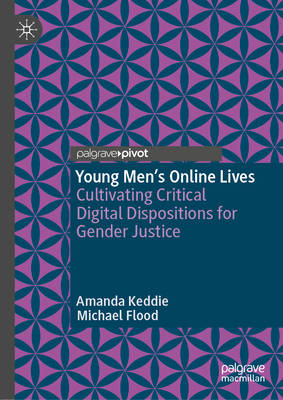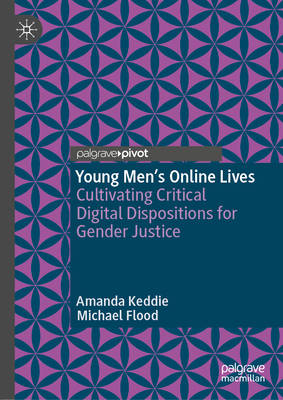
- Afhalen na 1 uur in een winkel met voorraad
- Gratis thuislevering in België vanaf € 30
- Ruim aanbod met 7 miljoen producten
- Afhalen na 1 uur in een winkel met voorraad
- Gratis thuislevering in België vanaf € 30
- Ruim aanbod met 7 miljoen producten
Zoeken
Young Men's Online Lives
Cultivating Critical Digital Dispositions for Gender Justice
Amanda Keddie, Michael Flood
Hardcover | Engels
€ 42,95
+ 85 punten
Omschrijving
This Palgrave Pivot offers insight into the factors that influence, motivate and inform young men's online experiences. In Australia and globally recent media and public discourse has expressed strong concerns about the gender-based harms arising from young men's online behaviours - these concerns have prompted renewed scrutiny on boys and masculinity and produced a sense of urgency around addressing these online harms. They have provided a strong warrant for research that seeks to better understand how young men are navigating their online worlds. This book presents findings from a qualitative study of 117 young men in Australia. In foregrounding a diversity of young men's voices, the book responds to calls for more nuance and care in how we debate the gendered impact of social media on young men's lives. As such we highlight the tensions and complexities in how young men navigate negative and positive online experiences including their critical engagement with harmful content. Against this backdrop, the book presents a case for fostering young men's critical digital dispositions towards more gender just engagements online. It provides a conceptual framework and series of activities for fostering these dispositions. The book will be of interest to students and researchers in critical masculinity studies, sociology, psychology, public health, and media and internet studies, as well as practitioners who work with young men.
Specificaties
Betrokkenen
- Auteur(s):
- Uitgeverij:
Inhoud
- Aantal bladzijden:
- 132
- Taal:
- Engels
Eigenschappen
- Productcode (EAN):
- 9783031999796
- Verschijningsdatum:
- 27/09/2025
- Uitvoering:
- Hardcover
- Formaat:
- Genaaid
- Afmetingen:
- 145 mm x 201 mm
- Gewicht:
- 294 g

Alleen bij Standaard Boekhandel
+ 85 punten op je klantenkaart van Standaard Boekhandel
Beoordelingen
We publiceren alleen reviews die voldoen aan de voorwaarden voor reviews. Bekijk onze voorwaarden voor reviews.








